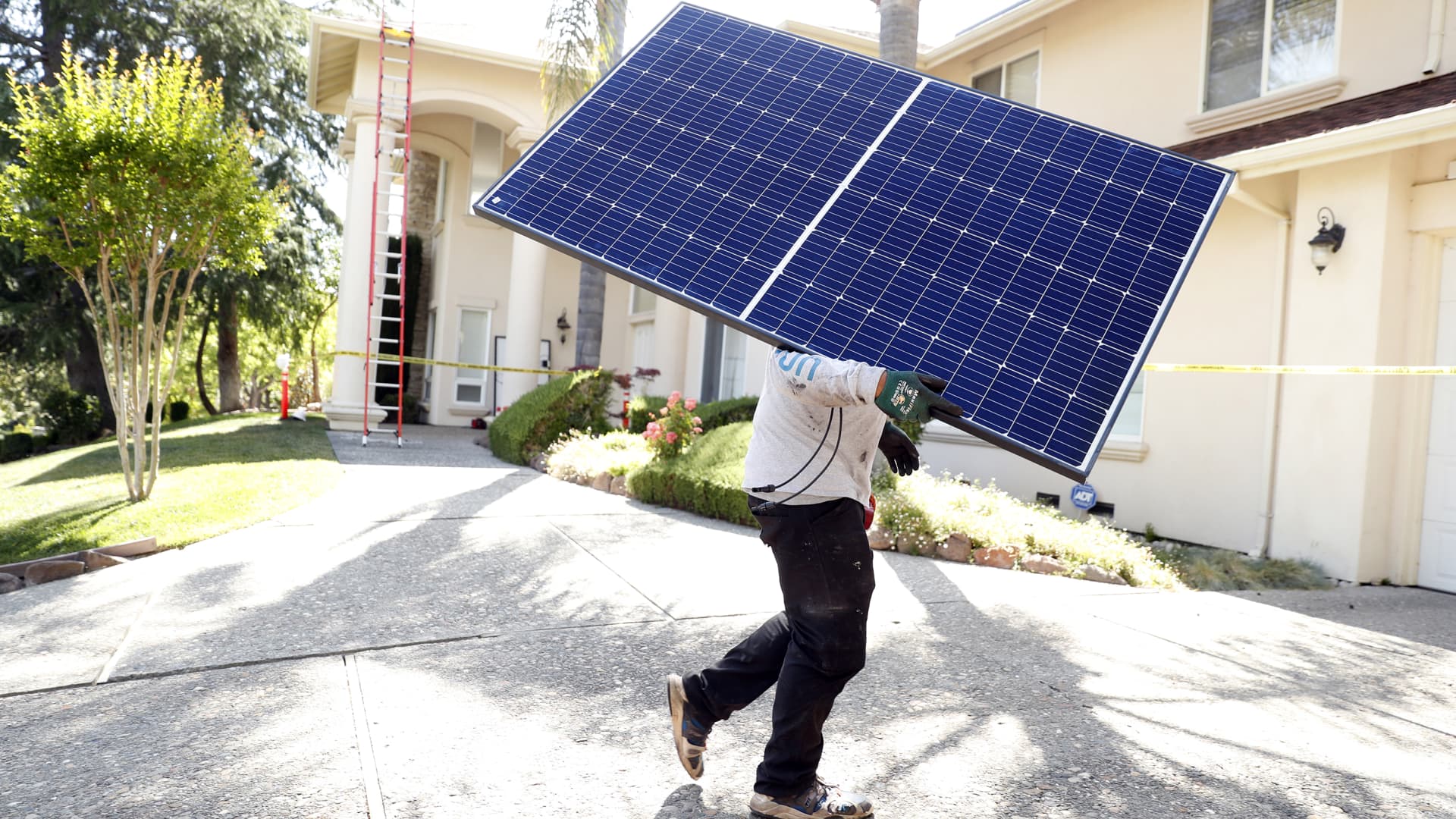Energy
Wednesday, September 28th, 2022 5:58 am EDT

Solar energy company Sunrun could see its share price double as it grows is residential business, according to Northland Capital Markets. Analyst Abhishek Sinha initiated Sunrun at a $60 price target, which would be a nearly 100% jump from its current price of $30.24. Sinha said the company stands to gain as the residential solar market grows 10% to 15% each year in 2022 and 2023 despite headwinds. “We believe this is just the very beginning of a secular bull market thesis as residential solar should become more widely prevalent greatly benefiting companies like RUN,” Sinha said in a note to clients. Sunrun should also get a boost from the Inflation Reduction Act, he said, which gives consumers a 30% tax credit for installation costs related to solar power or other renewable energy. The IRA benefits should help increase exposure in a market he called “extremely underpenetrated” at just 3.5% before 2021, he said. “The passage of the IRA bill has provided more wings to the already high-growth addressable market removing any ambiguity around if this would be a burgeoning phenomenon across the nation and not just select few states,” he said. Sinha cited data from Wood Mackenzie showing solar deployment should increase by 40% over the next few years, further bolstering the expectation of increasing demand . To be sure, the solar industry is expected to stay supply-constrained through the end of 2023, so benefits of the IRA will not be fully seen until after the supply chain improves, according to data from Wood Mackenzie Sinha included. Still, Sunrun is in a particularly good spot for capitalizing because the company designs specific equipment for each home it installs in. Sinha also said the company’s utilization of both direct-to-consumer and partnerships will help it compete within the market. On top of the growth potential, he said the recent pullback in the equity market creates a particularly attractive entry point. The energy storage sector has long-term growth potential, he said, as consumers look for alternatives while the reliability of utilities decrease. — CNBC’s Michael Bloom contributed to this report. This post has been syndicated from a third-party source. View the original article here.




